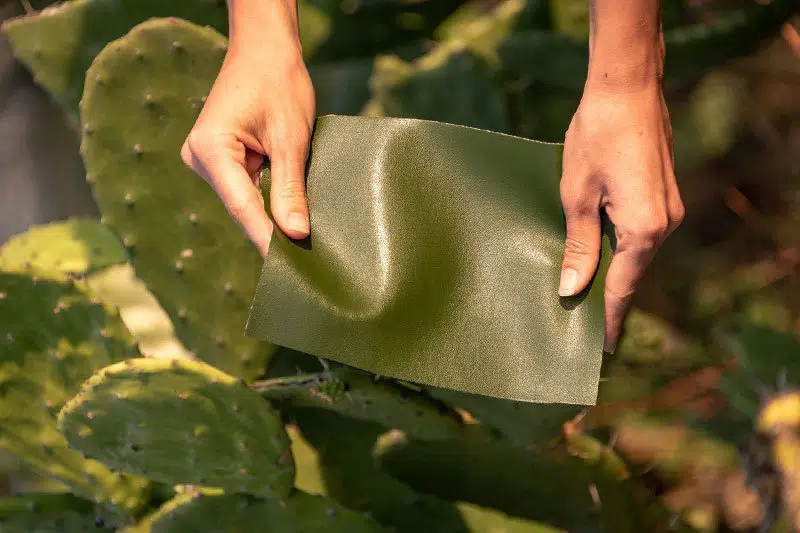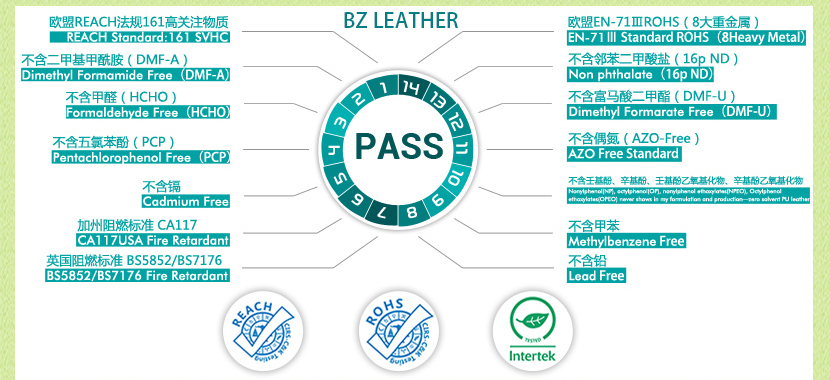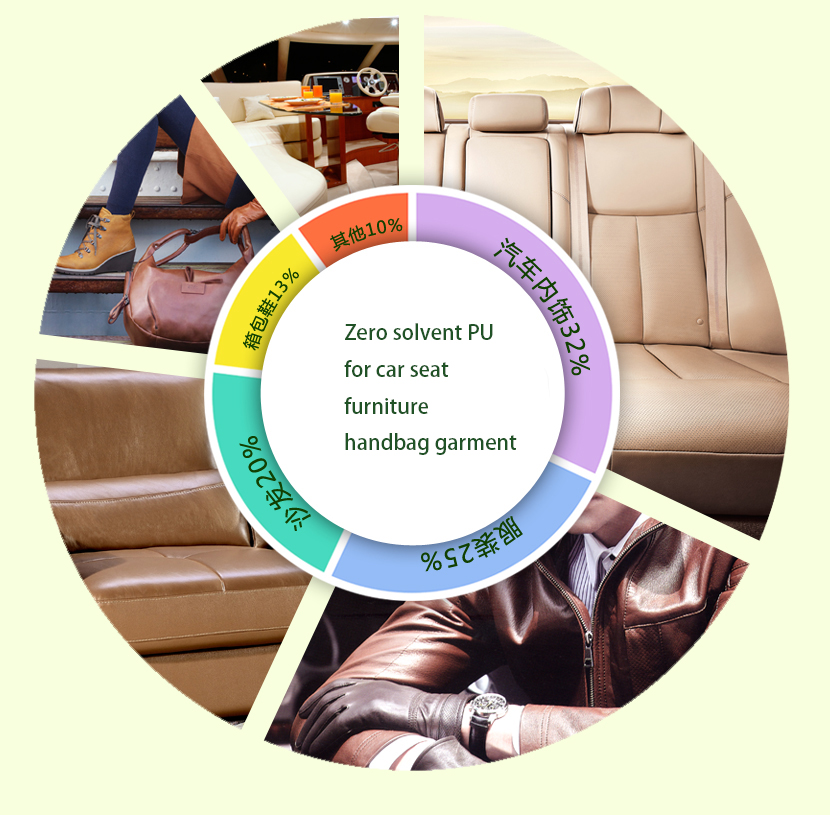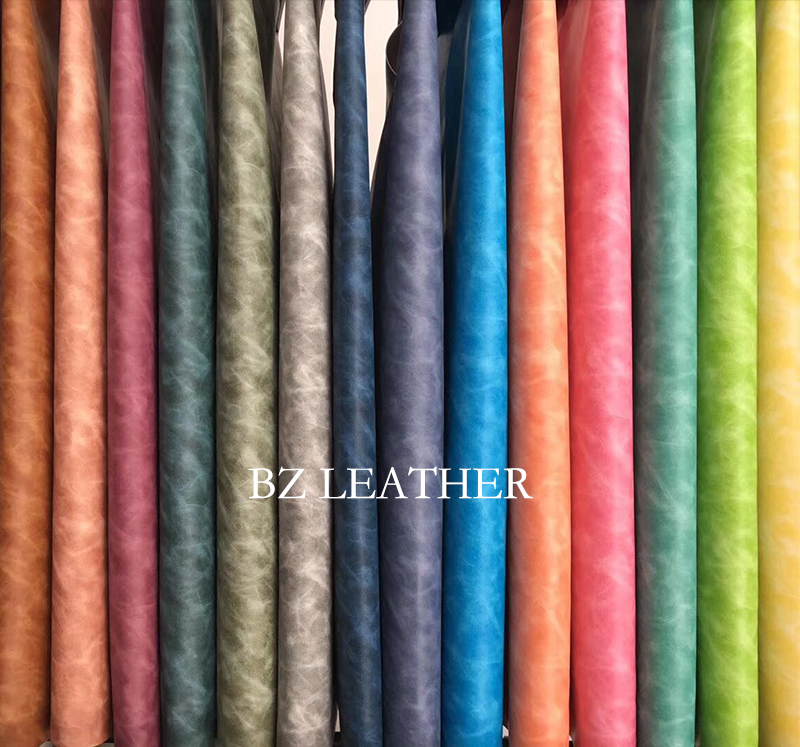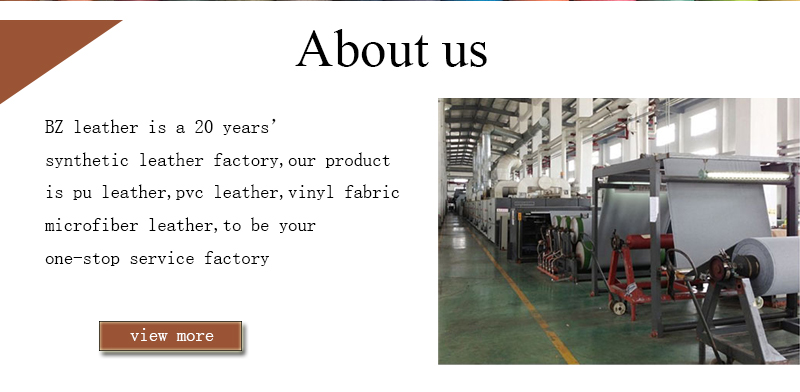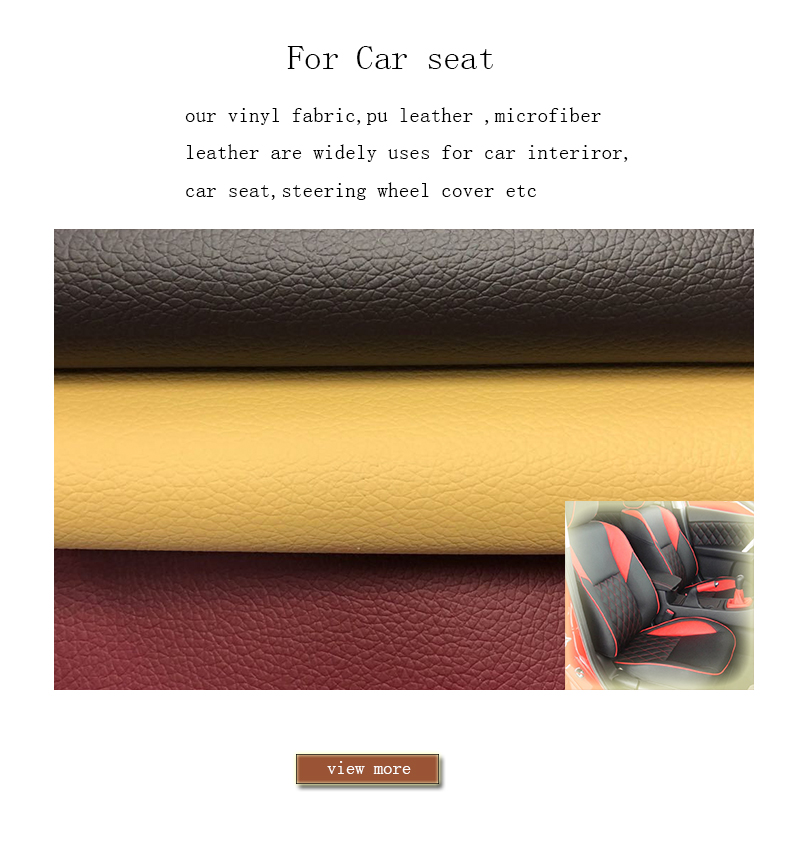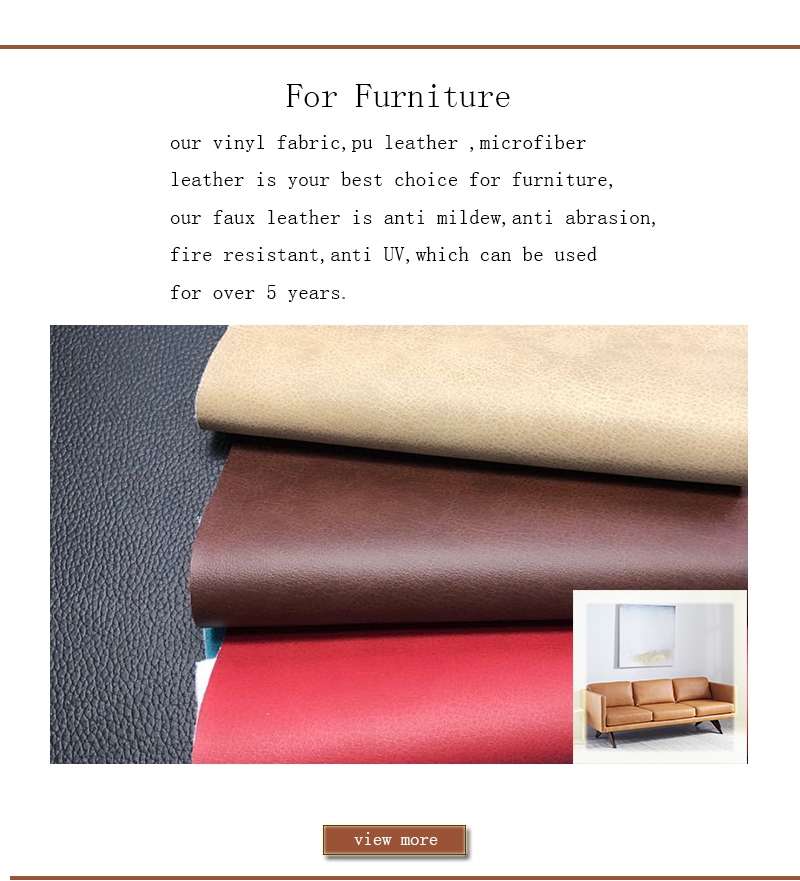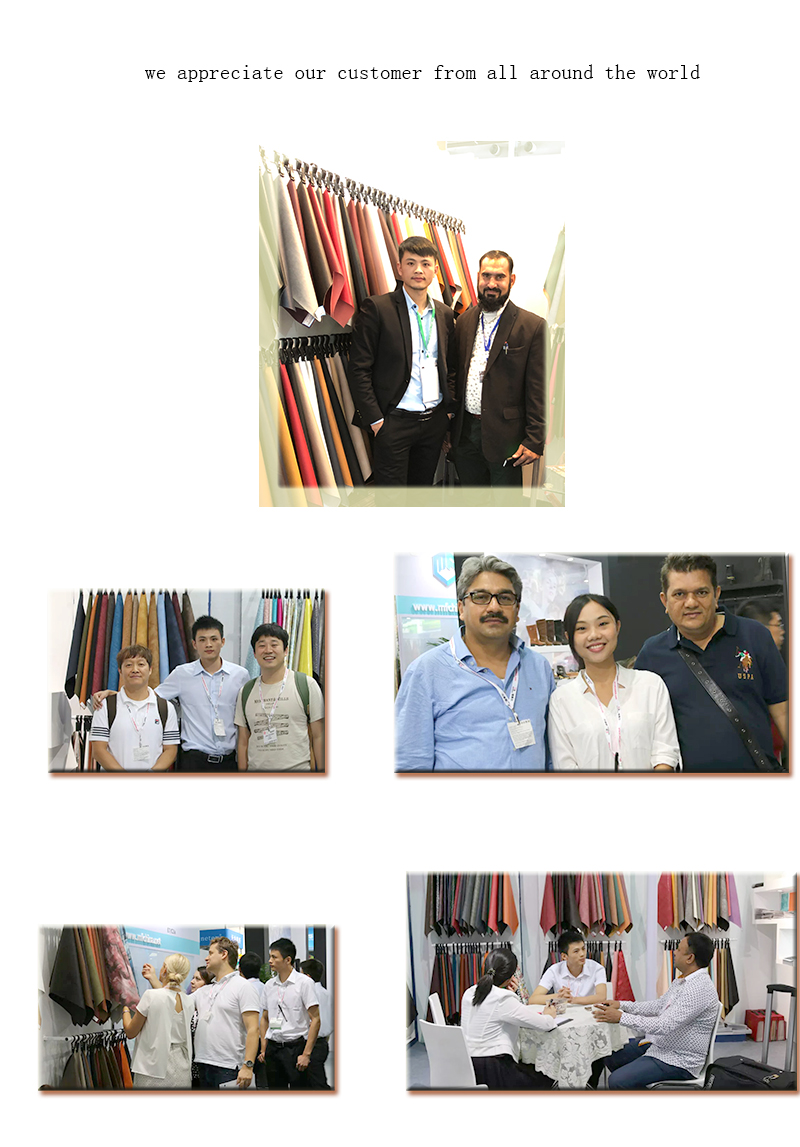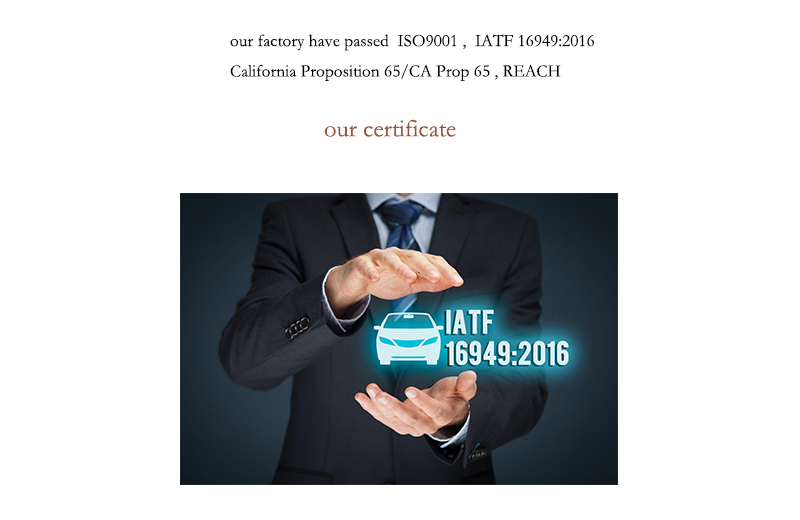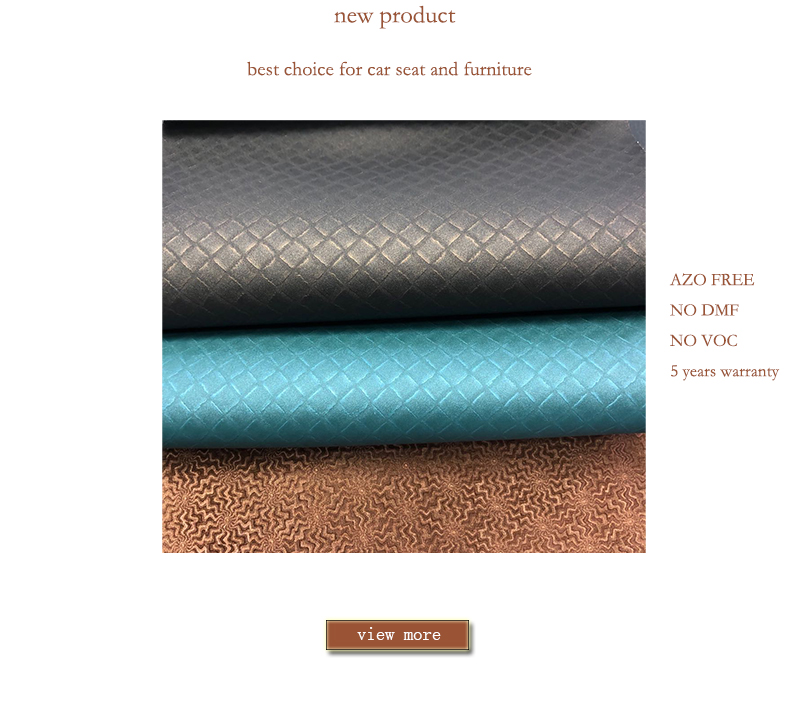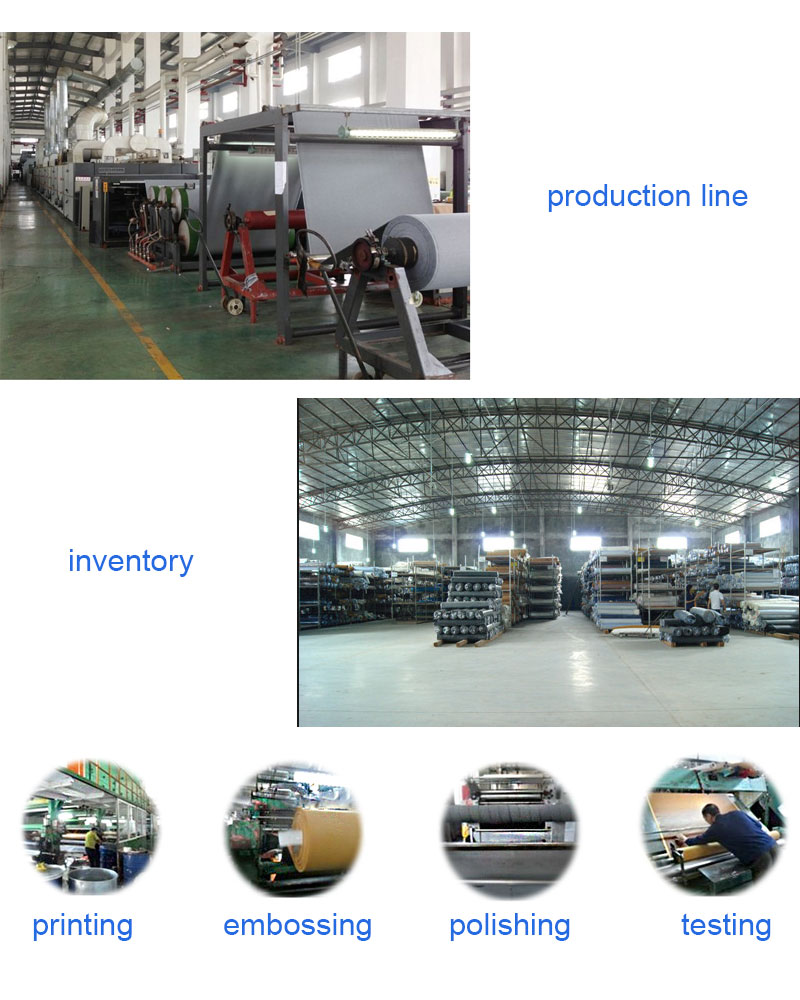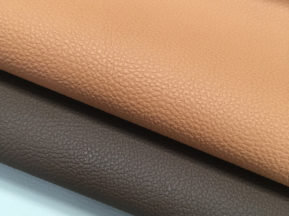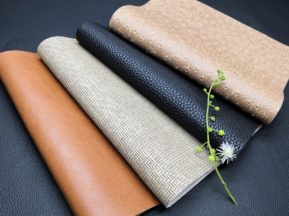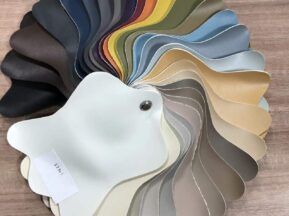the most popular vegan leather ?
vegan leather is a type of material designed to imitate the look and feel of traditional animal-based leather without using any animal products.
It is a cruelty-free and often more sustainable alternative to conventional leather.
there are 4 differents kinds of vegan leather which are most popular
1:corn leather
the corn starch can be made into non petroleum derived propanediol,you need add enzymes and add microorganism to turn the corn starch into Propanediol,then we use the Propanediol to make the biobased leather. below is the flow chart to make the Propanediol. 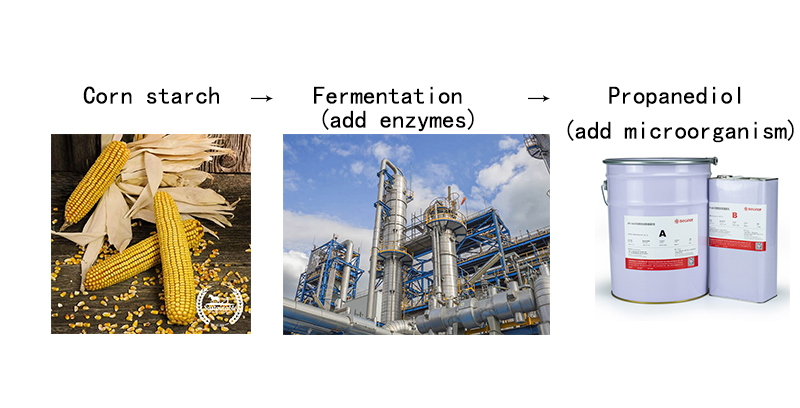
corn starch is from nature,and it is biodegradable, it will not cause Carbon dioxide when it is biodegraded. so it can reduce the influence on our environment. our vegan leather consist around 70% biobased carbon content.check below test report from BETA analytic testing laboratory 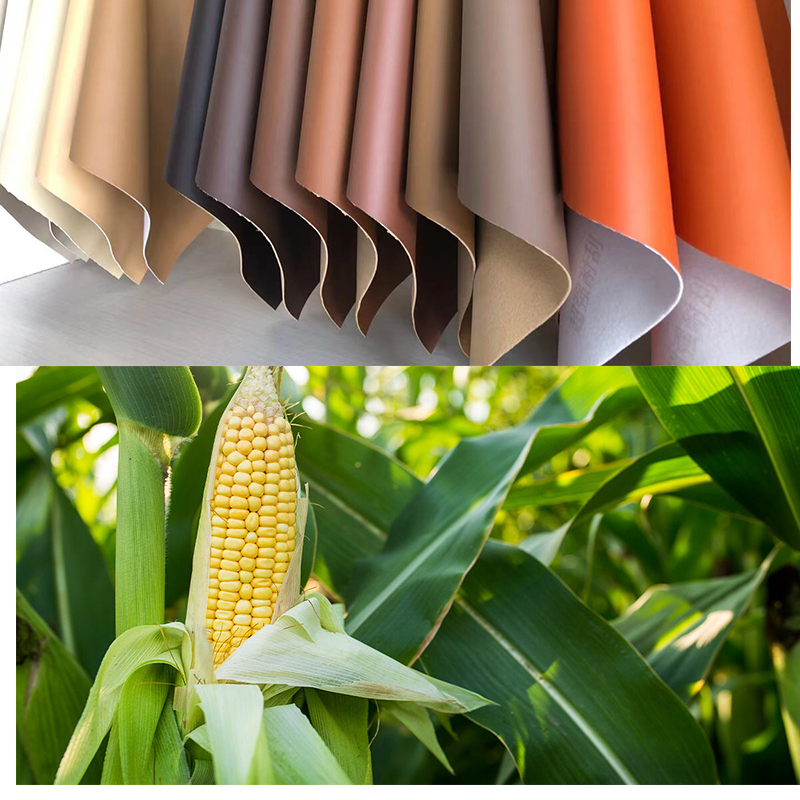
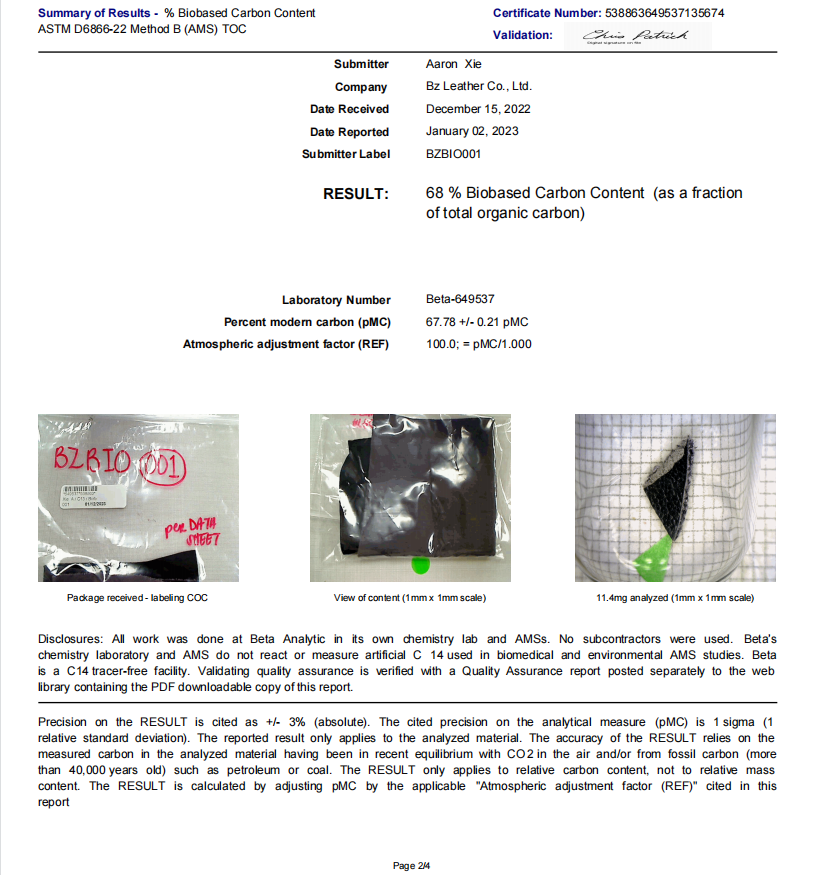
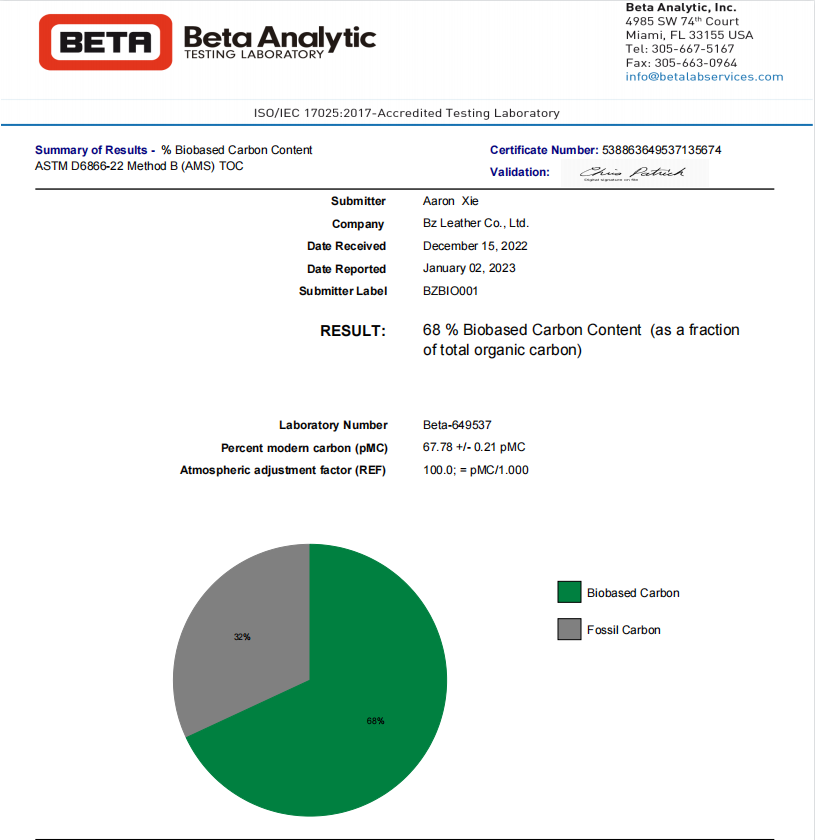
2:pineapple leather
Made from pineapple leaf fibers,we use the fiber to get the nonwoven fabrics
then we will coated the nonwoven fabrics with polyurethane to get leather apperance.
3:cactus leather
Cactus leather, also known as “vegetable leather” or “nopal leather,” is a type of vegan leather made from the fibers of the prickly pear cactus, specifically the Opuntia genus. This sustainable and eco-friendly alternative to traditional leather has gained popularity in the fashion industry due to its unique properties and minimal environmental impact.
The process of creating cactus leather typically involves the following steps:
- Harvesting: The mature leaves of the prickly pear cactus are carefully harvested without harming the plant.
- Processing: The harvested cactus leaves undergo a process to extract the fibers. This process usually includes cleaning, crushing, and then mechanically processing the material to obtain a fibrous texture.
- Dyeing and Tanning: The extracted fibers are often dyed using natural pigments to achieve various colors. Tanning agents, which are substances used to preserve and soften the material, are then applied. Unlike traditional leather, cactus leather doesn’t require the use of toxic chemicals such as chromium during the tanning process.
- Final Product: The processed cactus leather is then ready to be used in the manufacturing of various products, including bags, shoes, and accessories.
Cactus leather is appreciated for its sustainable and cruelty-free nature, as it doesn’t involve the use of animal products. Additionally, the cultivation of prickly pear cactus requires minimal water and land compared to traditional livestock farming.
4:apple leather
Apple leather, also known as “apple skin” or “apple leatherette,” is a sustainable and vegan alternative to traditional leather. It is made from the byproducts of apple processing, such as apple peels, cores, and pomace (the pulpy residue left after juice extraction). The production of apple leather helps reduce food waste by utilizing parts of the apple that might otherwise be discarded.
The process of making apple leather typically involves the following steps:
- Harvesting Apple Byproducts: The peels, cores, and pomace left over from the apple juicing or processing industry are collected.
- Cleaning and Processing: The collected apple byproducts are cleaned to remove any impurities. They are then processed into a pulp or fibrous material.
- Drying and Binding: The apple pulp or fibers are dried and combined with binding agents, such as polyurethane, to create a flexible and leather-like material.
- Finishing: The resulting material is treated and finished to achieve the desired texture, color, and appearance.
Apple leather is appreciated for its environmental benefits, as it utilizes waste from the food industry, reduces the reliance on petroleum-based materials, and avoids the use of animal products. The final product is often used in the manufacturing of various items, including bags, accessories, and footwear.
you may have some questions about vegan leather
1: is vegan leather safe?
vegan leather can pass environmental test,such as REACH 191,EN71 etc
2:is vegan leather durable
most of people will worry about the durability of vegan leather as many customers use cactus leather,or apple leather,but are not durable if they use it for shoes,sofa,car seat covers which requires high performance quality(good peeling strength,flexing resistant,hydrolysis resistant) for example,some vegan leather will crack or peel off on the surface during several months. however our vegan leather are around 30%-70% corn based,with our formulation it has premium physical performance,check below our test report of our vegan leather
| Test Item ITEM | Result | Test Method | ||||
| Weight | g/m² | 651 | ||||
| Thickness | mm | 1.2 | QB/T2888-2007 | |||
| Tensile Srength | N/2.5cm | L | 567 | QB/T2888-2007 | ||
| W | 401 | |||||
| Elongation | % | L | 85 | QB/T2888-2007 | ||
| W | 157 | QB/T2888-2007 | ||||
| Tongue Tear | N | L | 70 | |||
| W | 72 | QB/T2888-2007 | ||||
| Peel Strength | N/2.5cm | L | 50 | QB/T2888-2007 | ||
| W | 48 | |||||
| Aging-resistance Performance | NT95% | 5 years | OK | QB/T2888-2007 | ||
| TEMP70℃±2℃ | ||||||
| Abrasion Resistant | martindale above 70,000 rubs | OK | ||||
| Room temperature twists and turns | NT | 10W | OK | GB4689.9 | ||
| Color | color can be customized | |||||
| anti flexing | minus 20 celcius degree 50,000 times | No broken | ||||
| Report date:2023.01.01 | ||||||
so our vegan leather meet shoes,furniture and contract seating furniture requirement it is biodegradable yet durable .we have used it for shoes,bags,garment etc.
Products information
Products Certification
our products have got the REACH and RoHS certification



